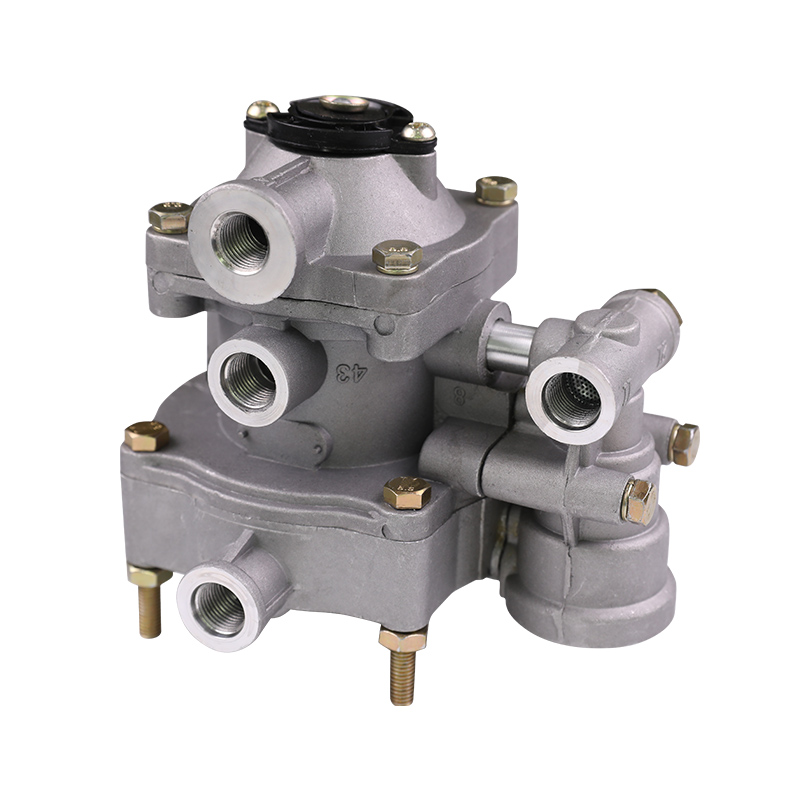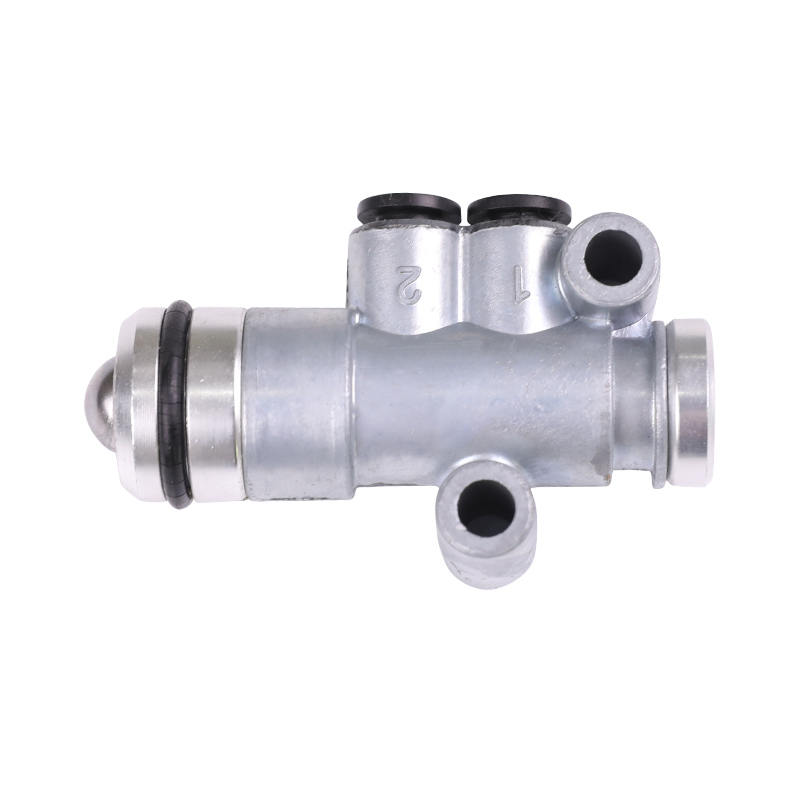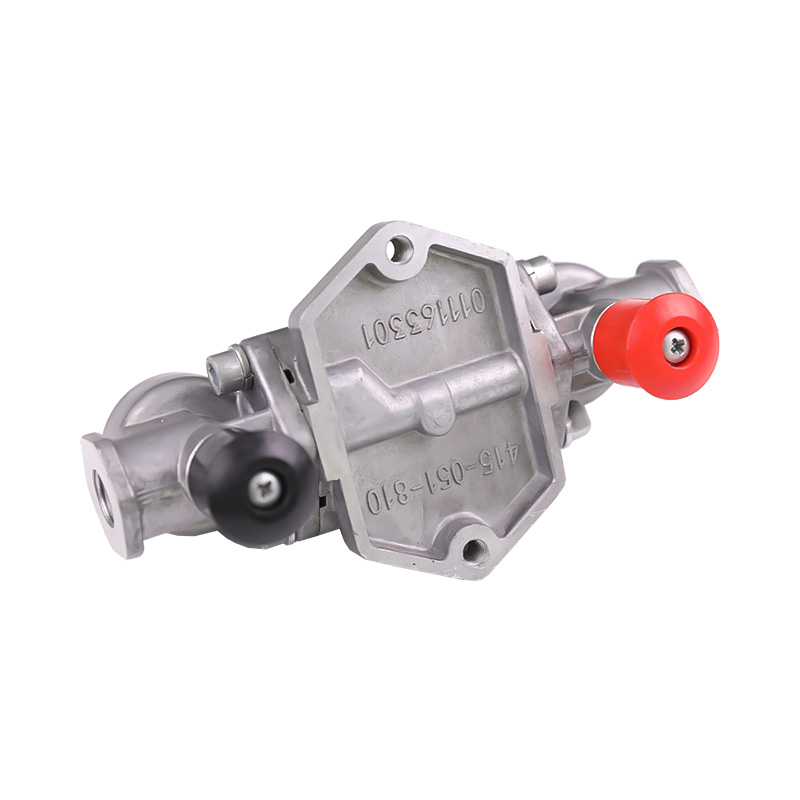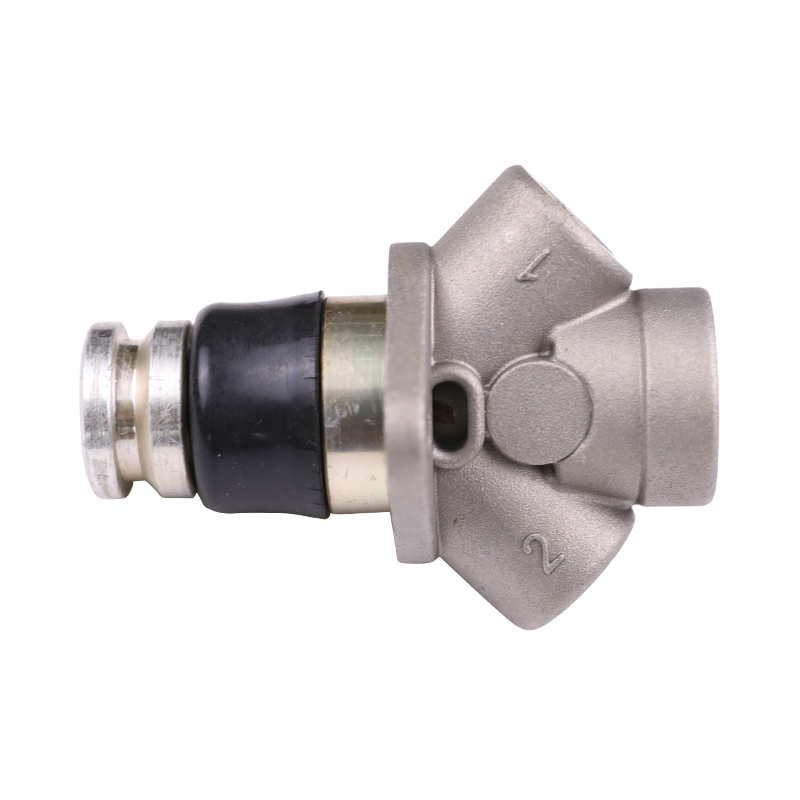A trailer control valve, also known as a trailer control relay valve or trailer brake valve, is an essential component in a trailer's air brake system. It is responsible for controlling the braking action of the trailer, allowing the driver to apply or release the brakes as needed. The trailer control valve works in conjunction with the tractor's brake system to ensure synchronized and efficient braking of the entire vehicle combination.
Features of Trailer Control Valves:
Air Input Ports: Trailer control valves typically have air input ports that connect to the air supply system of the tractor or towing vehicle. These ports receive compressed air from the tractor's brake system to operate the trailer brakes.
Control Mechanism: The valve features a control mechanism, usually in the form of a lever or knob, that enables the driver to manually activate the trailer brakes. By manipulating the control mechanism, the driver can adjust the braking force applied to the trailer.
Air Channels: Trailer control valves have internal air channels that direct the flow of compressed air to the trailer's brake chambers. These channels ensure proper air distribution for the activation and release of the trailer brakes.
Pressure Regulation: Some trailer control valves incorporate pressure regulation mechanisms to maintain consistent brake pressure in the trailer's brake system. This helps ensure even braking and prevents wheel lock-up or excessive wear on the trailer's brake components.
Functions of Trailer Control Valves:
Brake Activation: The primary function of a trailer control valve is to activate the trailer brakes when the driver applies the brakes in the towing vehicle. It allows the driver to control the braking force and apply it proportionally to the trailer.
Brake Release: When the driver releases the brake pedal in the towing vehicle, the trailer control valve releases the pressure in the trailer's brake system, releasing the trailer brakes. This ensures a smooth and controlled release of the brakes.
Braking Synchronization: The trailer control valve works in conjunction with the tractor's brake system to synchronize the braking action of the entire vehicle combination. It ensures that the trailer brakes engage and disengage at the same time as the towing vehicle's brakes, promoting stability and control during braking.
Anti-Lock Braking System (ABS) Integration: In modern trailers equipped with ABS, the trailer control valve may incorporate ABS functionality. It monitors wheel speed sensors and modulates brake pressure to prevent wheel lock-up, enhancing safety and stability during braking.
Benefits of Trailer Control Valves:
Enhanced Braking Performance: Trailer control valves allow for precise control of the trailer brakes, improving the overall braking performance of the vehicle combination. This promotes smoother deceleration, shorter stopping distances, and increased stability.
Safety and Control: By providing the driver with direct control over the trailer brakes, trailer control valves enhance safety and control while towing. The driver can adjust the braking force to match the road conditions, load weight, or other factors, ensuring optimal braking performance.
System Compatibility: Trailer control valves are designed to be compatible with various types of trailers and towing vehicles, making them versatile and widely applicable in different towing setups.
Compliance with Regulations: The use of a trailer control valve is often a legal requirement for trailers equipped with air brakes. Using a properly functioning control valve helps ensure compliance with regulations and promotes safe operation on public roads.







